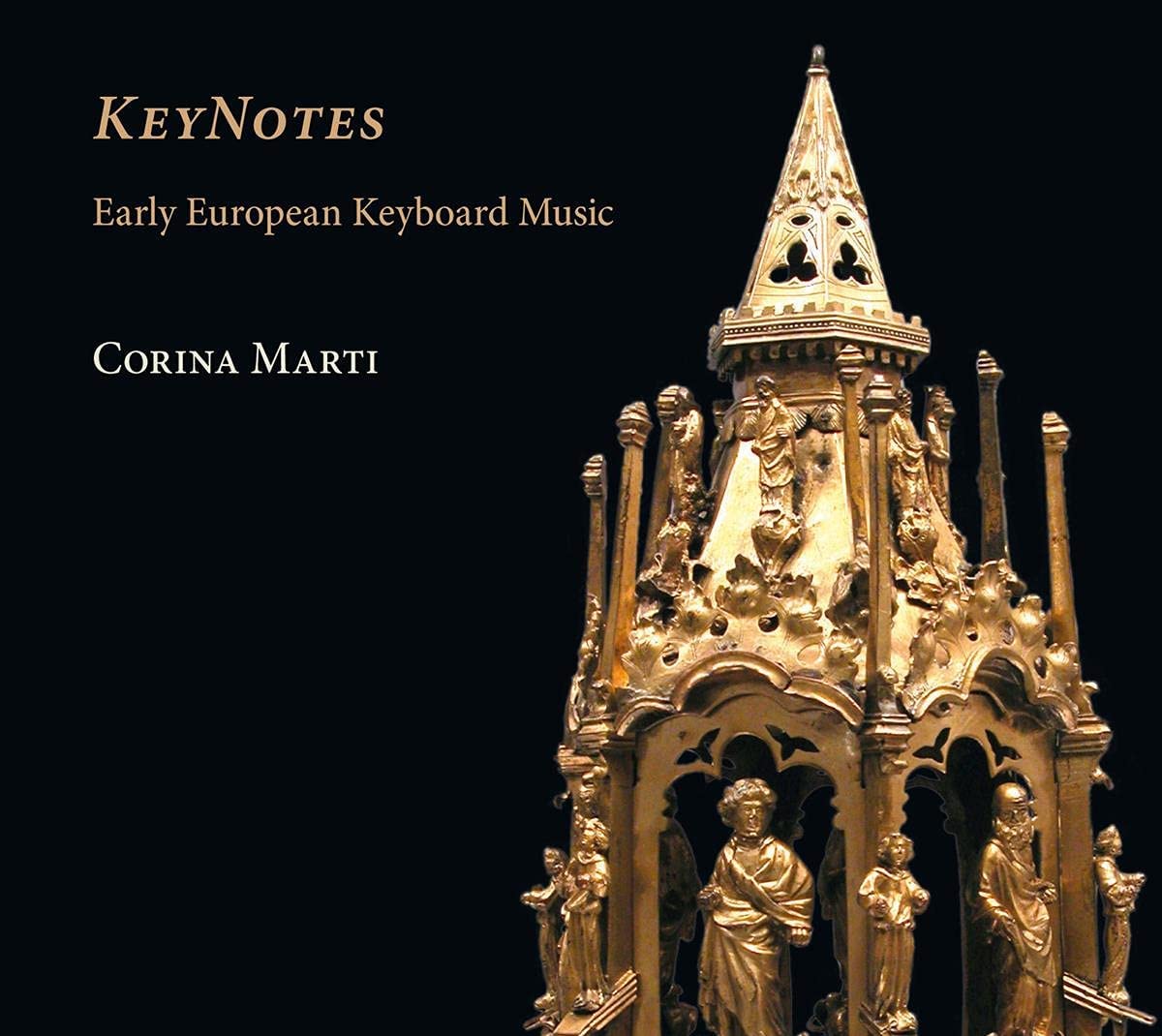Early European Keyboard Music
Corina Marti
65:54
Ramée RAM1916
Click HERE to buy this on amazon.co.uk
[These sponsored links help the site remain alive and FREE!]
For her performances of early European keyboard music on clavisimbalum, claviciterium (clavicytherium), organetti and medieval organ, Corina Marti raids the usual 14th- and 15th–century sources : the codices of Faenza, Buxheim, Las Huelgas, Florence and Peruggia, as well as a new one for me, the Robertsbridge Manuscript, two pages of 14th-century keyboard music bound together with another manuscript associated with Robertsbridge in Kent. From this last manuscript Marti plays a setting of Tribum quem non obhoruit, which unfortunately turns out to be a reworking of familiar music by Phillippe de Vitry – how much more exciting to have heard a wholly original English keyboard work from this period. I find 14th- and 15th-century keyboard music, with its mixture of rawness and fluidity, utterly compelling, and I enjoyed these accounts by Corina Marti, although I did wonder just occasionally about some of the mannered hesitations in the performances, which I suspect may not have been entirely for musical reasons. So while this CD perhaps lacks the jaw-dropping virtuosity and sheer bravado of the accounts of similar repertoire by Tasto Solo, Marti plays her selection of instruments idiomatically and persuasively. The medieval organ on which many of the tracks are performed is the wonderful Altenbruch Organ, an instrument embodying pipe-work from its original construction by Johannes Koch before 1497, which has survived a number of later reworkings, including one by Johann Hinrich Klapmeyer in 1727. It has the real and rare sound of a voice from the past, and truly brings this fine music to life.
D. James Ross
